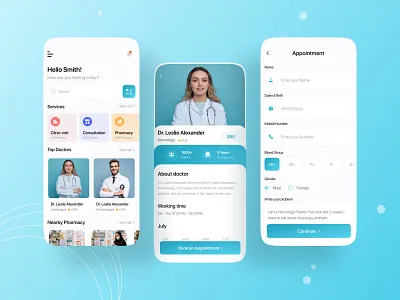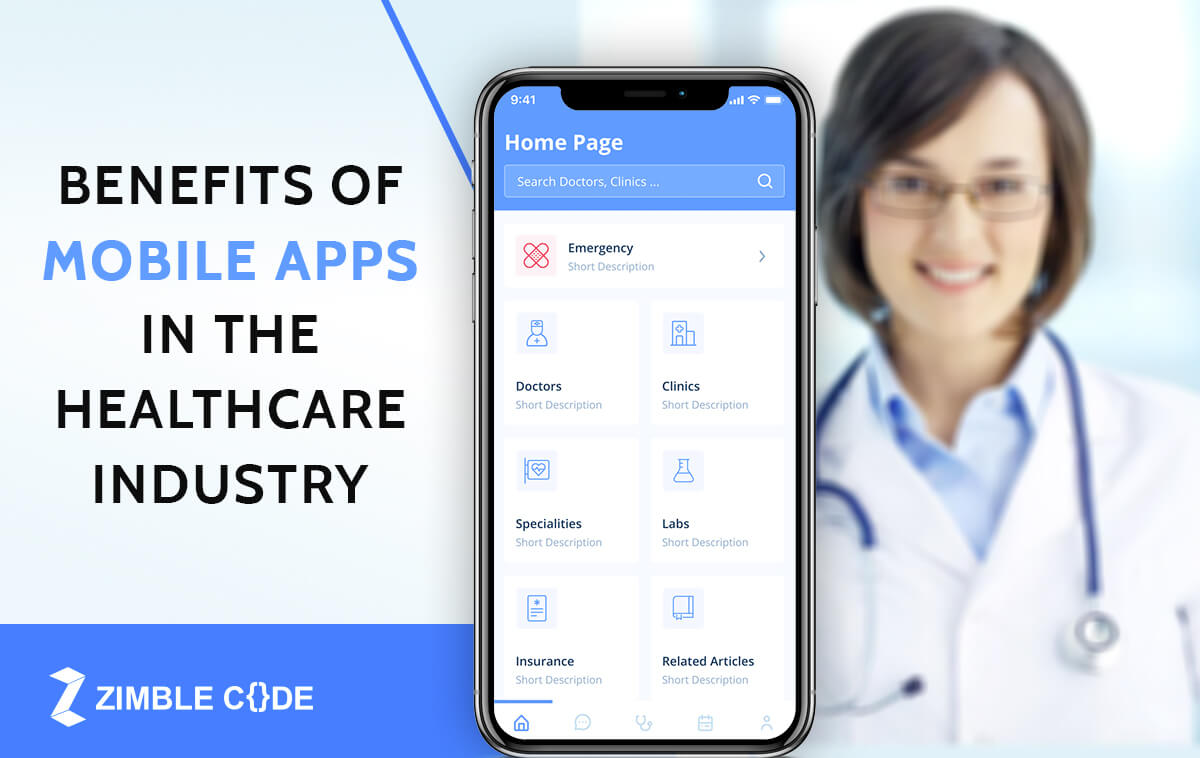Enhancing Patient Engagement With a Mobile App for Clinics: Key Methods
Enhancing Patient Engagement With a Mobile App for Clinics: Key Methods
Blog Article
The Future of Medical Care: Why Clinics Required a Mobile App Today
As the healthcare landscape continues to advance, clinics deal with placing pressure to adapt to individual assumptions for greater comfort and access. The integration of mobile applications can act as a vital strategy for improving patient interaction and improving operations. By leveraging technology to improve communication and provide vital services, clinics not only resolve current needs however likewise place themselves for future success. Nonetheless, the implications of this change extend past mere functional efficiency; they might redefine individual connections and care shipment in extensive methods. What might this transformation resemble for both patients and centers?
Changing Patient Assumptions
As the landscape of health care progresses, client assumptions are undertaking a considerable transformation. Today's patients are progressively seeking benefit, ease of access, and individualized treatment.
Moreover, people are becoming a lot more notified and encouraged, usually investigating treatments and conditions on-line prior to examinations. This heightened awareness is combined with a demand for openness in health care procedures, including cost price quotes and therapy choices. Because of this, service providers are compelled to adapt by adopting electronic tools that enhance the client experience.
The expectation for prompt and effective interaction has never been higher, with many individuals thinking about responsiveness an important component of quality treatment. mobile app for clinics. In this evolving landscape, medical care organizations need to acknowledge these changing assumptions and leverage mobile applications to foster a much more patient-centric strategy, making sure that they not only fulfill yet go beyond the criteria set by today's enlightened customers
Enhancing Individual Involvement

Mobile applications promote communication in between patients and doctor, enabling real-time consultation scheduling, pointers for drug adherence, and direct messaging attributes. These capabilities not only boost ease however likewise construct a feeling of accountability among patients. Mobile apps can supply academic web content tailored to specific needs, helping individuals better understand their problems and therapy options.
The assimilation of gamification elements within health care applications can likewise inspire clients to engage in healthy and balanced habits, enhancing favorable lifestyle modifications. Eventually, enhancing person involvement via mobile applications leads to improved health end results, greater client complete satisfaction, and a more collaborative medical care experience.
Enhancing Center Procedures
Improving facility procedures is vital for enhancing process performance and maximizing patient care. The execution of mobile applications can dramatically lower administrative burdens, permitting healthcare service providers to focus a lot more on patient communications. By automating visit scheduling, person check-ins, and payment processes, facilities can reduce wait times and boost total operational effectiveness.
Mobile apps also facilitate real-time accessibility to patient documents, allowing health care specialists to make informed decisions rapidly. This immediacy not just boosts the quality of care yet Recommended Reading additionally minimizes the likelihood of errors connected with misplaced or obsoleted details. Furthermore, leveraging mobile modern technology sustains an extra well organized technique to taking care of patient follow-ups and treatment plans, making certain that no critical actions are neglected.
This allows for prompt replenishment and aids avoid disruptions in client treatment due to equip lacks. By integrating these functionalities right into their everyday operations, facilities can create a more effective and cohesive atmosphere, ultimately leading to enhanced client end results and complete satisfaction.
Improving Interaction Networks
Effective interaction is often pointed out as a cornerstone of quality medical care distribution. In today's busy clinical setting, mobile applications can substantially boost communication channels between clinics, people, and doctor. By incorporating mobile apps right into their operations, clinics can assist in real-time interactions, making certain that patients obtain prompt information concerning their visits, examination outcomes, and therapy plans.
Mobile apps also equip patients to connect directly with their healthcare teams with safe and secure messaging features. This direct visit here line of communication promotes a feeling of engagement and permits immediate explanation of issues, which can bring about better adherence to treatment methods. Push notices can remind patients of upcoming visits or medication schedules, lowering no-show prices and boosting general wellness end results.

Staying Competitive in Healthcare
In a quickly developing health care landscape, organizations must prioritize development and adaptability to keep a competitive edge. The combination of mobile applications right into health care solutions is no more optional; it is vital for centers intending to enhance person engagement, streamline procedures, and boost total solution distribution.
As patients increasingly count on electronic platforms for health monitoring, clinics that stop working to embrace mobile innovation risk dropping behind. A well-designed mobile application can provide functions such as visit scheduling, telemedicine assessments, and access to clinical records, supplying people with comfort and promoting commitment.

Competitors are additionally purchasing mobile options, so staying in advance requires continuous renovation and staying notified about technical developments. Centers must not just carry out mobile applications but likewise take part in routine updates and refinements. Eventually, the successful assimilation of mobile innovation will certainly identify forward-thinking healthcare companies and established the criteria for patient-centric treatment in a digital globe.
Verdict
In conclusion, the combination of mobile applications in facilities is vital to address the evolving landscape of person expectations. Ultimately, the critical execution of mobile Your Domain Name apps represents a crucial action toward providing easily accessible and individualized health care, consequently meeting the demands of today's equipped patients.
Ultimately, boosting person involvement via mobile applications leads to improved wellness outcomes, greater individual contentment, and a much more joint health care experience.Mobile applications also facilitate real-time accessibility to person documents, making it possible for health care experts to make enlightened decisions swiftly. In today's fast-paced clinical environment, mobile applications can significantly enhance interaction networks in between clinics, clients, and health care carriers.Mobile applications additionally empower people to interact straight with their health care groups via safe messaging attributes. Eventually, the calculated execution of mobile apps represents an essential action toward providing individualized and easily accessible healthcare, thereby meeting the requirements of today's equipped clients.
Report this page